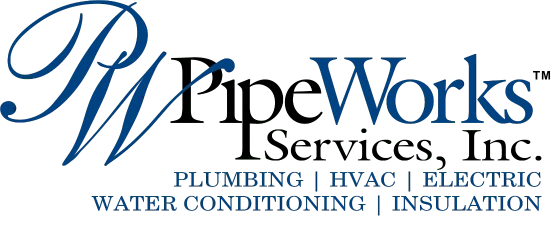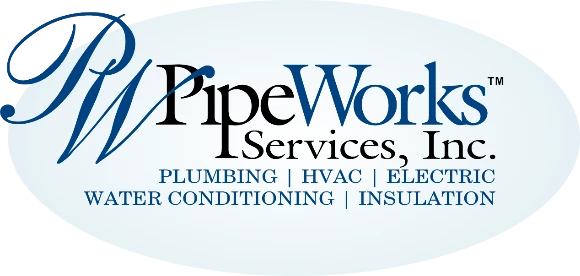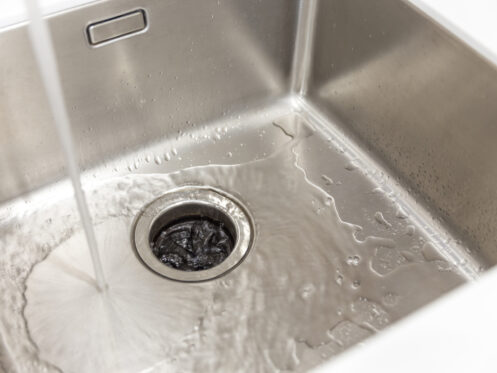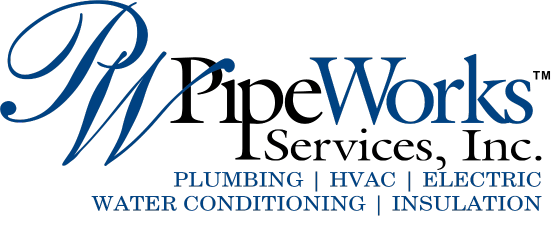Homeowners in Chatham, NJ can optimize the performance of their plumbing systems and sidestep a host of common drain and sewer line issues with rooter service. Originally designed to cut through invasive tree roots and weeds in sewer pipes, rooter machines can also remove silt, sediment, biofilm, and built-up grease, soap scum, and hair. Although scheduling rooter service is an excellent way to resolve clogs, overflows, and whole-house backups, it’s also a highly effective preventative measure.
What Is Rooter Service?
Plumbers perform rooter service with coiled, industrial-strength rooter machines. These machines feed mechanized drain augers or drain snakes into plumbing cleanouts or other access points. They extend them deep into wastewater pipes and sewer lines. These sharp, retractable tools slough off tough, tacky build-ups of organic waste and loosen sediment.
Rooter machines are equipped with sewer line cameras, monitors, and clog locators. As plumbers perform rooter service, these accessories assess the integrity of pipes to prevent treatment-related pipe damage. While sloughing off trapped waste, plumbers use low-pressure water hoses to flush loosened debris toward the sewer main.
Open the Interior of Your Sewer Pipe
Each time you use your plumbing system, small amounts of waste are added to your pipes’ interior walls. Body oils from shower and bath water and greasy residues from dishwashers and kitchen sinks have a cumulative impact on the overall functionality of wastewater pipes. As these things build up, they gradually decrease the interior diameter of indoor pipes and outdoor sewer lines. With less room to move through, exiting wastewater slows down, and solid and slow-degrading items have a greater likelihood of getting snagged.
Following rooter services, pipe interiors are completely open and clean. Your drains will clear out quickly, and you’ll have a lower risk of developing clogs or experiencing overflows in the future.
Clear Tree Roots and Weeds
Sewer lines are constantly at risk of being encroached upon by nearby weeds and tree roots. These growths are eager to access their nutrient-rich contents. When aging pipes develop tiny cracks or pinhole leaks, tree roots detect moisture and nutrients in the surrounding soils and grow toward sewer lines. Both trees and weeds can send out lateral roots that are small enough to fit into tiny cracks. Once they gain entrance, these roots can experience exponential growth. Over time, they may even fill sewer pipes entirely.
Rooter service breaks small, lateral roots down before they can block the movement of wastewater altogether. This prevents whole-house backups, massive cracks in sewer pipes, landscape damage, and more. Rooter service can also power through larger roots and break them down into small pieces. These pieces are then flushed out of sewer lines and on to the municipal sewer system.
Eliminate Snagged and Slow-Degrading Waste
Even if you don’t have tree roots in your sewer pipe, you may have build-ups of snagged, slow-degrading items that put you at risk of a whole-house backup. “Flushable” self-care wipes are common culprits. Often reinforced with durable polymers, these wipes don’t dissolve like toilet paper when submerged. Some “flushable” wipes can remain completely intact for months after entering plumbing systems. They can also get caught on build-ups of sediment and rough pipe interiors.
Flushable wipes absorb fats and fatty waste in plumbing systems. Once saturated, they attract and adhere to one another. This results in large, stubborn masses that slow wastewater down. Rooter service can break through these masses or snag flushable wipes and pull them out.
Prevent Problems Caused by Slow-Moving Drains
Keeping your wastewater moving at a reasonable rate can also prevent future plumbing problems. Slow-moving water is often rife with bacteria, fungi, and other dangerous germs. It’s also a source of foul and incredibly pungent drain odors and a major attractant for drain gnats, rodents, and other pests.
Prevent Buildups of Biofilm
Expediting the movement of sluggish wastewater reduces buildups of biofilm within plumbing systems. Biofilm is a black, gooey excretion from pathogens like bacteria, viruses, and fungi. It lines the interiors of dirty drains and wastewater pipes. It also contributes to unpleasant drain odors. Rooter service flushes biofilm out and prevents it from reforming.
Improve the Efficacy of Your Ongoing Drain Maintenance
Dumping equal parts white vinegar and baking soda into plumbing drains has a mild freshening effect. Although homemade drain cleaning solutions like this one can’t take the place of professional drain cleaning, they are effective for extending its benefits. With open pipe interiors and less biofilm, the daily efforts that you make to keep your drains moving swiftly and smelling fresh will go much further.
Protect Your Fixtures
Dirty wastewater pipes and drains can lead to dingy sinks, tubs, and shower pans. Slow-moving water leaves behind greasy residues and dangerous pathogens. If there are stain-causing agents in your wastewater, they’re less likely to discolor your plumbing fixtures when your drains are moving swiftly.
Spot Developing Problems Early On
The sewer line cameras on rooter machines inform rooter service so that plumbers don’t scratch protective pipe coatings, puncture weak pipe materials, or push large, solid items deeper into plumbing systems. However, they can also help plumbers identify issues that require immediate interventions to keep them from spiraling out of control, such as:
- Offset pipe sections
- Pest infestations
- Cracked or crushed pipes
- Sewer line leaks
By catching and correcting these problems right away, you may be able to limit their repair costs and prevent them from causing damage in other areas.
Protect Aging Pipes From High-Pressure Water Jets
Hydro jetting is a top choice for clog removal in both wastewater pipes and sewer lines. It’s also a popular drain cleaning technique in newer homes and homes with recently replaced wastewater pipes. However, given that it’s performed with water pressure levels as high as 4,500 pounds per square inch (psi), it isn’t ideal for aging and badly corroded pipes. If you aren’t ready for pipe replacement but still want your drains and sewer line cleaned, rooter service can get the job done safely.
How Often Should You Schedule Rooter Service?
All homeowners in Chatham should schedule drain cleaning at least once each year. You can consult with our plumbers to find out if rooter service is the best drain cleaning method for you and get a needs-specific drain cleaning schedule.
What to Know About Regular Rooter Service for Invasive Tree Roots
If you’ve had problems with tree root encroachment in the past, you might need rooter service more often. Tree roots can take up to two years to fully regrow after treatment with a rooter machine. However, some tree roots and weeds can return within just 30 days. Sometimes, the most cost-effective way to deal with fast-growing roots is to replace damaged sewer pipes or invest in tree removal and stump grinding.
Since 2000, we’ve proudly serviced Chatham and the surrounding cities. We offer top-notch heating, air conditioning, electrical, and plumbing services. We also provide insulation, ice damming solutions, and new ductwork. To schedule rooter service or drain cleaning for your home, get in touch with Pipe Works Services today!





